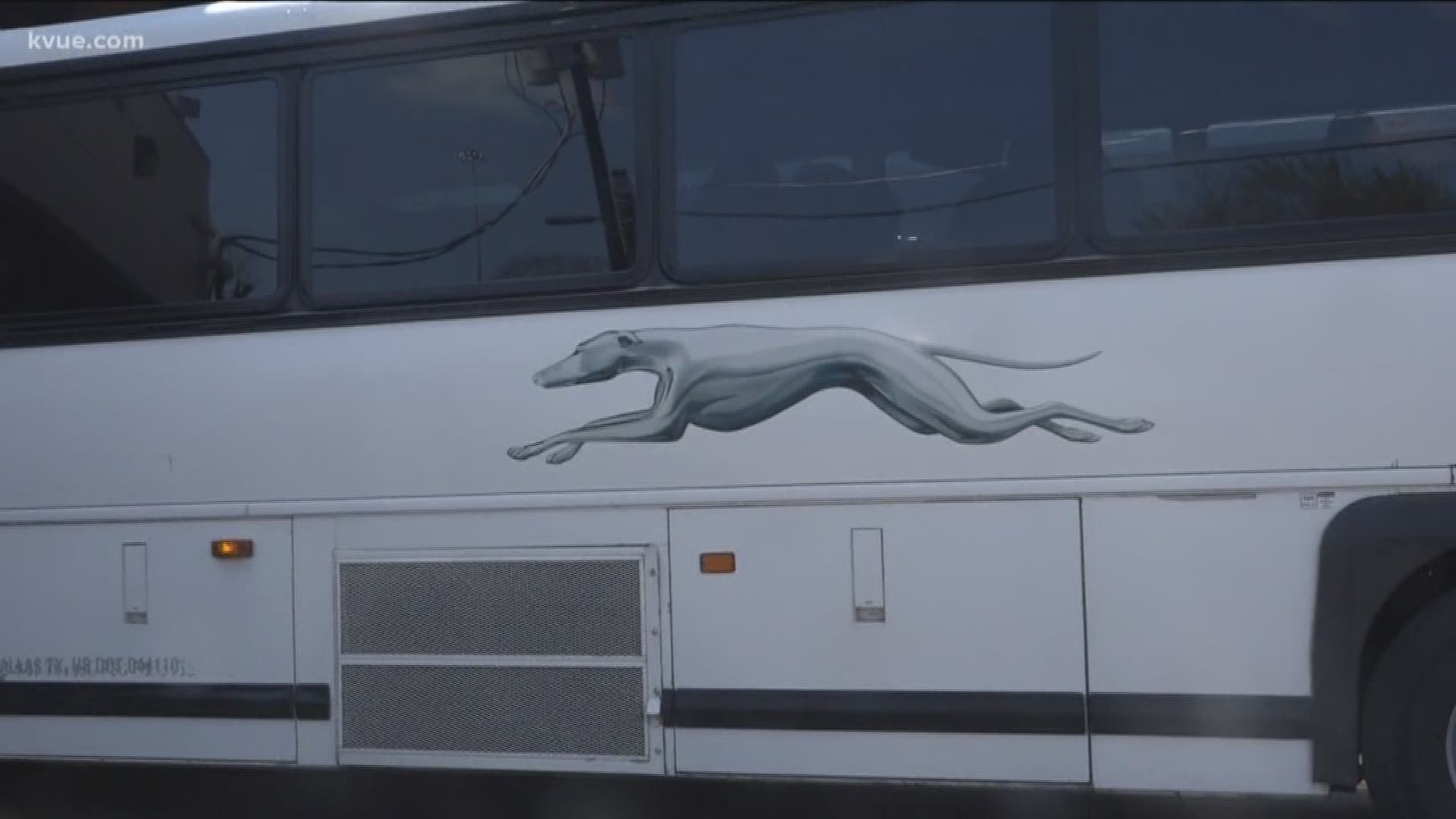AUSTIN, Texas — Traveling across Texas by Greyhound, Delia Pacheco has never been to the U.S. before and told KVUE on Wednesday she's not looking to cause any trouble.
"We come from Durango, Mexico. We come to look around on vacation," said Pacheco. "It's our first time here. We have a visa; we have permission."
On Friday, Greyhound announced it will no longer allow Border Patrol officers to conduct random searches on its buses without a warrant.
RELATED:
Here's the statement that was provided to KVUE from Greyhound:
"We are providing drivers and terminal employees with updated training regarding this policy change. We will also place stickers on all of our buses clearly displaying our position. In addition, Greyhound will be sending a letter to the Department of Homeland Security formally stating we do not consent to warrantless searches on our buses and in terminal areas that are not open to the general public. Our primary concern is the safety of our customers and team members, and we are confident these changes will lead to an improved experience for all parties involved. We plan to begin the implementation of these changes immediately."
Alex Guzman, who was waiting at the Austin Greyhound bus station on Wednesday, said his father is from El Salvador and doesn't speak English. He said he worries about him when he gets on the bus alone
"Our situation – my parents are hard-working people, and me, I was born here and I always look at them as an example, and to see that they are in safe hands, it makes me feel safe too," said Guzman.
KVUE reached out to U.S. Customs and Border Protection for an interview, and it gave this statement:
"While CBP does not comment on materials asserted to be leaked internal memos, management regularly disseminates information to reinforce existing protocols. For decades, U.S. Border Patrol agents have routinely engaged in enforcement operations at transportation hubs. Enforcement operations away from the immediate border are performed consistent with law and in direct support of immediate border enforcement efforts, and such operations function as a means of preventing smuggling and other criminal organizations from exploitation of existing transportation hubs to travel further into the United States. The U.S. Border Patrol conducts regular outreach with transportation companies to foster good working relationships."
PEOPLE ARE ALSO READING:

